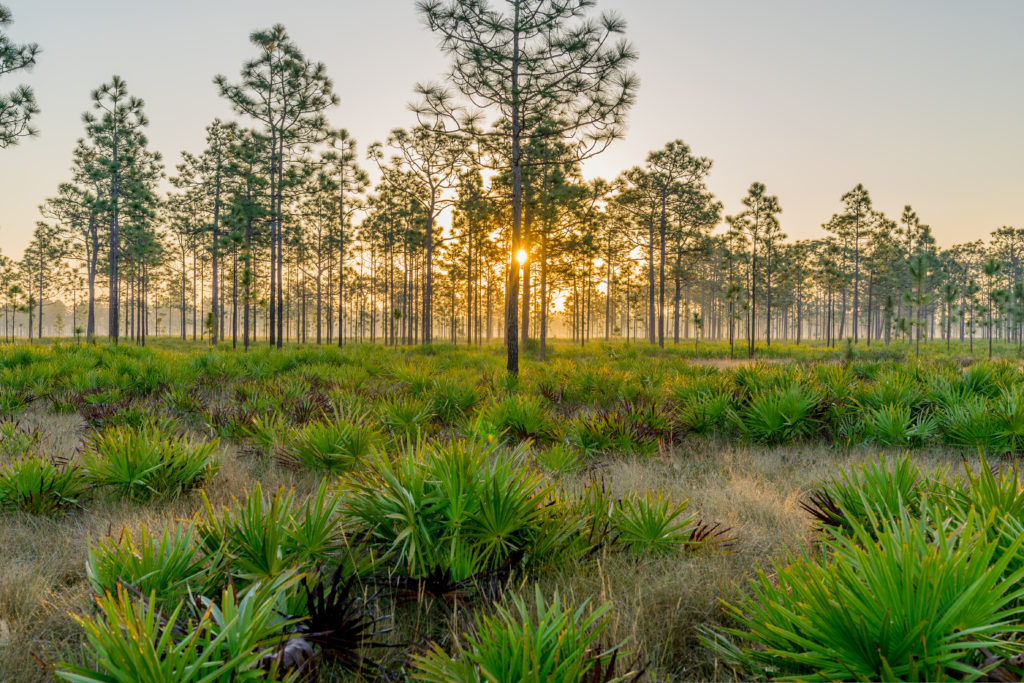Florida is experiencing a climate emergency. Temperatures continue to increase, sea levels are rising, flooding is displacing communities, and intensified storms threaten both our coasts and inland areas. These cascading effects touch every aspect of Floridian’s daily lives: our health, water resources, and work.
At the 2018 Global Action Summit, AFL-CIO president Richard Trumka, a coal miner by trade, noted that “Climate change threatens our workers, our jobs and our economy.” Workers across the world face the consequences of climate inaction, including heat stress and other health risks. Climate impacts where we live and the jobs available there too. If done right, with innovation and justice at the top of mind, the fight to fundamentally transform the nature of our energy grid provides remarkable economic opportunities.
True climate action looks like reducing the use of dirty fossil fuels and transitioning our economy and workforce to clean, renewable energy resources. What’s standing in our way? Your lawmakers.
Studies have documented what every worker who has ever had to endure the hot Florida summer already knows: heat stress has a significant impact on workers’ health and productivity. An additional health risk is vector-borne diseases, which are due to increase due to climate change. Disease cases stemming from mosquito, tick, and flea bites tripled from 2004 to 2016 in the United States. The physical risks associated with climate change are both chronic and acute. They can include climate change impacts from changing weather patterns, sea-level rise, temperature extremes, and changes in the availability of water or other natural resources.
Workers should be at the forefront of the ongoing discussion about how Florida will act on climate. Because when we advocate for environmental protection, we not only save the birds and bees, but people too. Efforts to save our planet must be people-centered; rather than focusing on individuals’ impacts, voters should hold lawmakers and polluters accountable for environmental neglect.
We know that the impacts of climate change will disproportionately impact low-income communities and workers of color. We also know that voters care about climate change and labor issues.
How can workers impact climate change? Vote. We must swiftly transition to a clean energy economy that works for all our communities, reduce the harmful pollution created by burning fossil fuels, and invest in strategies that help us prepare for the impacts of climate change, many of which are already underway. But to do all of this, our lawmakers must have the willpower to act on climate.
Florida Conservation Voters works to elect lawmakers who protect our environment and stand up for healthy communities for everyone. At Florida Conservation Voters, we envision a government that reflects the people it serves and lawmakers who vigorously fight for policies that protect our environment and create a healthy, sustainable future for all Floridians.
Today, tomorrow, and in the days to come, Florida’s lawmakers will enact policy that makes or breaks our state. They will have the opportunity to prepare Florida for the days ahead: for population growth, climate change, and protections for our workers. Your lawmakers will have the opportunity to set renewable energy goals, commit to science-based climate solutions, and enact so many other safeguards for our land and water. But some lawmakers will only act under the pressure of the ballot box, or be forced out by informed voters. Will you vote with climate in mind this year?
The 2020 election is important for so many reasons. Climate and labor are two of those reasons, and they are intertwined. Each passing year without climate action is a year wasted, and unfortunately, Florida is running out of time. As you head to the ballot box or vote by mail, vote for the future. Your vote will determine the health of our living world and those who call it home.
Carson Mitchell is the Communications Manager for Florida Conservation Voters

